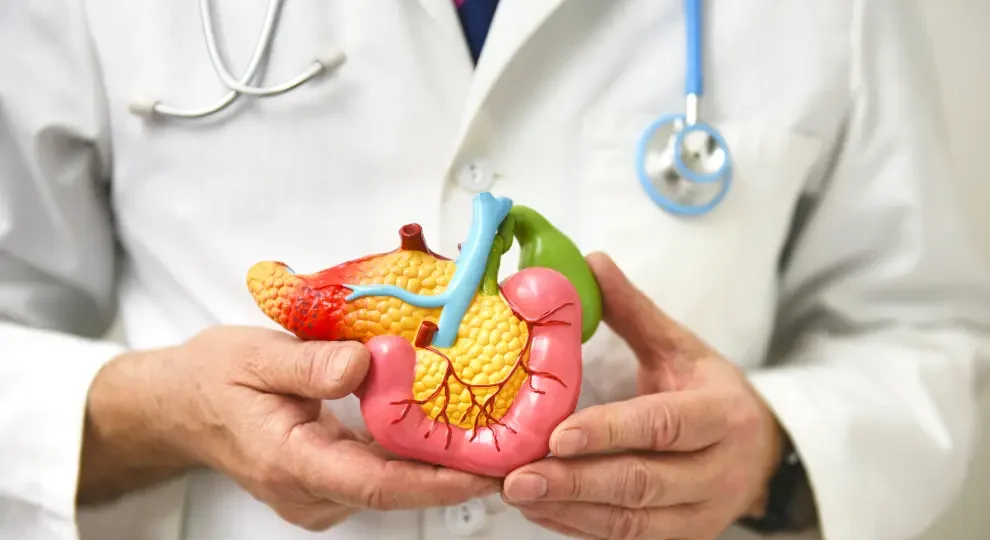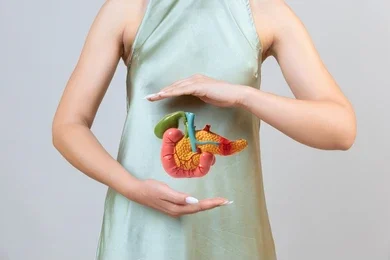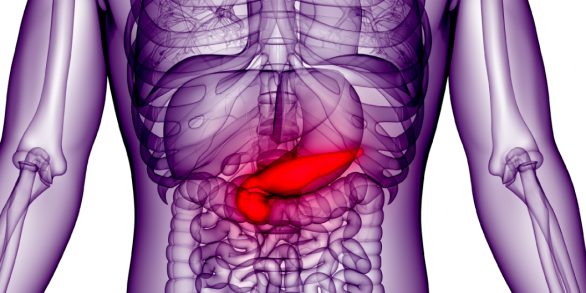
Pancreatic cancer is one of the most challenging and aggressive forms of cancer, with a high rate of metastasis and low survival rates. It primarily affects the pancreas, an organ that plays a crucial role in digestion and blood sugar regulation. The impact of pancreatic cancer on nutrition is profound, affecting the patient’s ability to digest food, absorb nutrients, and maintain a healthy weight. This article will explore how pancreatic cancer affects nutrition, the challenges faced by patients, and the ways in which diet and nutrition can be managed during treatment.
1. The Role of the Pancreas in Digestion and Nutrition

To understand how pancreatic cancer impacts nutrition, it is important to first understand the function of the pancreas. The pancreas has two key functions: endocrine and exocrine. The exocrine function is particularly vital for digestion as it produces digestive enzymes that help break down fats, proteins, and carbohydrates. Additionally, the pancreas secretes bicarbonate to neutralize stomach acid in the small intestine.
When pancreatic cancer develops, it often impairs the pancreas’ ability to produce these enzymes, leading to significant digestive issues. This inability to digest food properly results in malnutrition and weight loss, which are common in pancreatic cancer patients. Additionally, pancreatic cancer can obstruct the bile ducts, further complicating digestion, especially of fats.
2. The Impact of Pancreatic Cancer on Digestion
Malabsorption and Steatorrhea
One of the most significant nutritional challenges faced by individuals with pancreatic cancer is malabsorption. As the tumor grows and blocks the ducts, the pancreas may no longer be able to secrete enough digestive enzymes, leading to malabsorption of vital nutrients. This often results in steatorrhea, a condition where undigested fat is excreted in the stool, leading to oily, foul-smelling stools and weight loss.
In addition to fat malabsorption, the body also struggles with digesting proteins and carbohydrates, which can lead to deficiencies in essential vitamins and minerals, including vitamins A, D, E, and K, which are fat-soluble vitamins.
Poor Nutrient Absorption
The pancreas is also responsible for producing insulin, which helps regulate blood sugar levels. Pancreatic cancer can disrupt this function, leading to difficulties in maintaining normal blood sugar levels. Malabsorption and fluctuations in blood sugar levels can result in both hypoglycemia (low blood sugar) and hyperglycemia (high blood sugar), further complicating nutrition and increasing the risk of complications such as diabetes.
3. Weight Loss and Cachexia

Unintentional Weight Loss
Unintentional weight loss is one of the most common symptoms of pancreatic cancer. Patients often experience rapid weight loss due to the combination of malnutrition, reduced appetite, and increased energy expenditure caused by the body’s attempt to fight the disease. Cachexia, a condition characterized by severe weight loss, muscle wasting, and fatigue, is often seen in advanced stages of pancreatic cancer.
Cachexia is thought to result from the cancer’s release of pro-inflammatory cytokines, which disrupt normal metabolism. The loss of lean body mass and muscle tissue reduces a patient’s strength and ability to perform daily tasks. This exacerbates the challenges of cancer treatment, as patients may be less able to tolerate therapy or recover from surgery.
4. The Role of Diet and Nutrition in Pancreatic Cancer Treatment
Proper nutrition is critical in the management of pancreatic cancer, particularly in alleviating symptoms and improving quality of life. During treatment, patients may experience side effects from chemotherapy, radiation therapy, or surgery, including nausea, vomiting, and reduced appetite. A well-planned diet can help mitigate these effects, prevent malnutrition, and maintain strength.

Enzyme Replacement Therapy (ERT)
In cases where pancreatic function is impaired, enzyme replacement therapy (ERT) is commonly prescribed. ERT involves taking oral pancreatic enzyme supplements that help break down food and improve digestion. These supplements can alleviate symptoms like steatorrhea and help patients better absorb nutrients. A healthcare provider will often tailor the dosage based on the patient’s individual needs and the severity of enzyme insufficiency.
High-Calorie, Nutrient-Dense Foods
For patients with pancreatic cancer, it is often necessary to consume a high-calorie, nutrient-dense diet to prevent weight loss and malnutrition. Foods rich in healthy fats, proteins, and carbohydrates are essential. Examples include avocado, nuts, seeds, olive oil, and full-fat dairy products. In cases where eating solid foods is difficult, patients may benefit from smoothies or liquid meals that provide essential nutrients in a more digestible form.
Small, Frequent Meals
Many patients with pancreatic cancer find that eating large meals is difficult due to decreased appetite, nausea, and bloating. Small, frequent meals throughout the day are often recommended to ensure that patients get enough calories and nutrients. This approach can help prevent the discomfort associated with eating large meals and promote better digestion.
Managing Diabetes
As pancreatic cancer can interfere with insulin production, patients may develop diabetes or experience fluctuations in blood sugar levels. Monitoring blood sugar and making adjustments to diet is essential in managing this aspect of the disease. A balanced diet with complex carbohydrates, lean proteins, and healthy fats is essential for maintaining stable blood sugar levels.
5. Psychosocial and Emotional Considerations
Nutrition in pancreatic cancer treatment is not only a physical challenge but also an emotional one. The emotional toll of a cancer diagnosis can contribute to decreased appetite and feelings of nausea or aversion to food. Furthermore, patients may feel isolated or frustrated by the difficulties of maintaining a healthy diet in the face of treatment-related side effects.
Psychological Support
Psychological support from healthcare providers, nutritionists, and mental health professionals is crucial for addressing the emotional barriers to eating. Counseling or support groups can help patients cope with anxiety, depression, and the stress that often accompanies a cancer diagnosis. In some cases, seeing a dietitian who specializes in oncology nutrition can help guide the patient in making food choices that are both nutritious and palatable.
Family Support
Family members play an essential role in providing emotional support and assistance with meal preparation. They can help encourage a positive approach to food, assist with cooking, and even bring meals to the patient during treatment. Positive reinforcement and a supportive environment can encourage patients to take in more food and help them maintain a sense of normalcy during their treatment.
The impact of pancreatic cancer on nutrition is significant and multifaceted, affecting a patient’s ability to digest food, absorb nutrients, and maintain a healthy weight. From digestive issues like malabsorption to complications like cachexia, pancreatic cancer presents unique challenges to the body’s nutritional needs. Proper nutritional management, including enzyme replacement therapy, high-calorie foods, and emotional support, plays a vital role in alleviating these issues, supporting treatment, and improving quality of life.
Patients with pancreatic cancer must work closely with their healthcare providers and dietitians to manage their nutritional needs effectively. With the right approach to diet and nutrition, it is possible to minimize the impact of cancer and treatment on a patient’s nutritional status, helping them maintain strength and resilience throughout their cancer journey.
